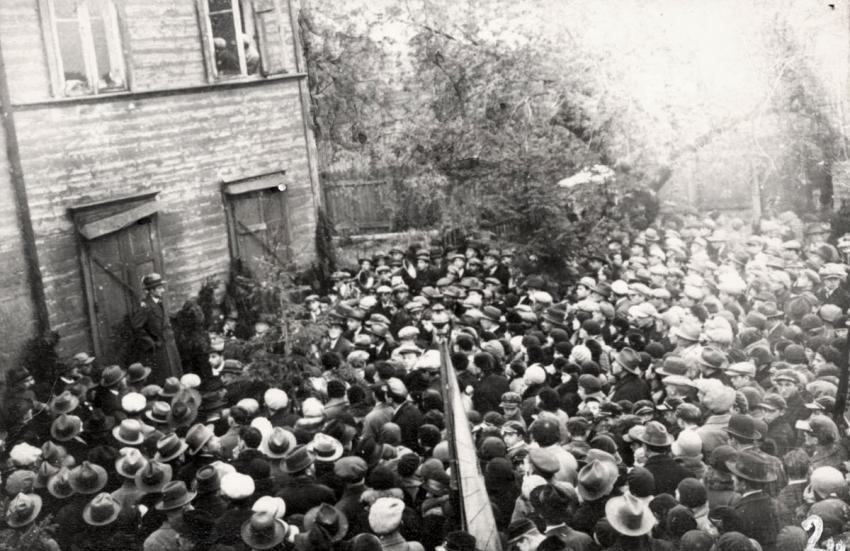Peretz Hirshbein speaking during YIVO’s first conference, which took place along with the laying of the cornerstone for the library building, 1929.
The YIVO Institute for Jewish Research (Yidisher Visnshaftlekher Institut, Yiddish Scientific Institute) was founded in Vilna, Poland, in 1925.
IVO dealt with collecting cultural artifacts and in research, primarily in history, philology, literature, economics, statistics, psychology and education. Its goals were to translate into Yiddish the classics of world culture, so that most Jews would be able to encounter them, as well as gather materials for the study of Yiddish and Jewish subjects for Jewish scholars and scholars of Judaism.
YIVO’s collections included more than 200,000 Jewish and secular books, Yiddish newspapers from all over the world, photographs of Jewish paintings and musical collections. These cultural treasures served as a source of Jewish identification, connecting the different sectors of the Jewish people. The institute’s publications were in Yiddish, accompanied by abstracts in English, German and Polish.
As an additional step in their attacks against Jewish cultural life in the Vilna Ghetto, the Germans confiscated books from the YIVO Library in April 1943, after a year of relative calm. As part of “Operation Rosenberg”, the Germans forced Shmerke Kaczerginski and others to collect Jewish documentary materials from YIVO to be transferred to Germany. Since YIVO was situated outside of the ghetto, Kaczerginski, assisted by the poet Sutzkever and others, managed to rescue books, manuscripts and portions of the Vilna Ghetto Archive. Amongst the workers for the Germans was also Herman Kruk, who organized the ghetto’s library and was its director. With the German conquest of Vilna in June 1941, YIVO’s leadership moved to New York, where the institute continues its work today.
Yad Vashem Photo Archives 3380/642







